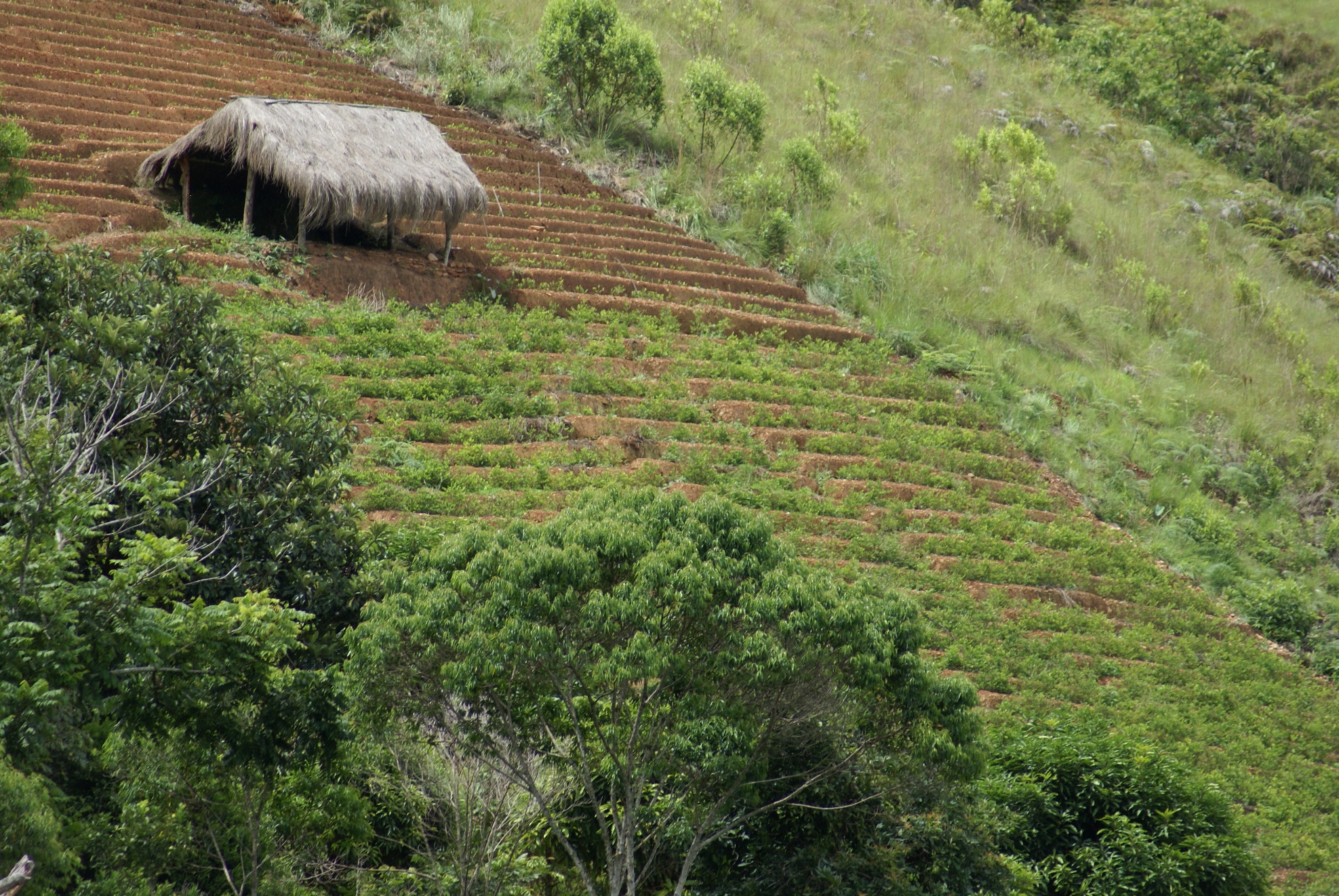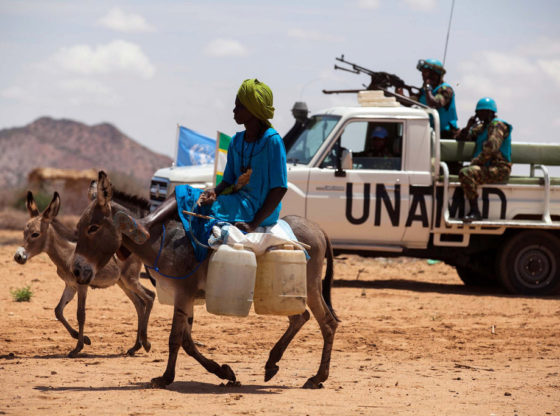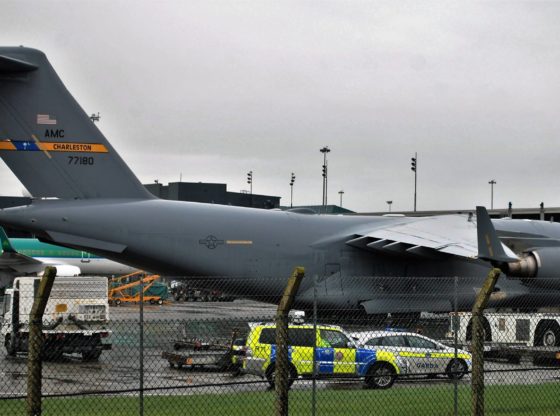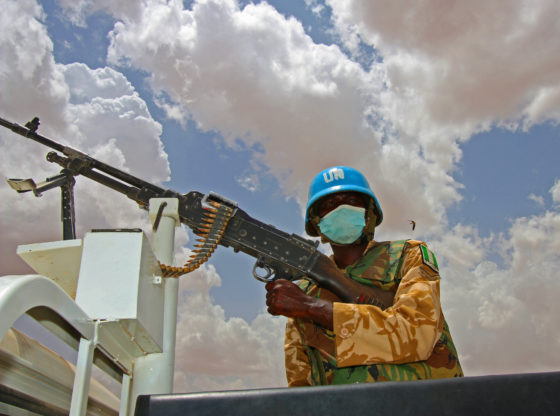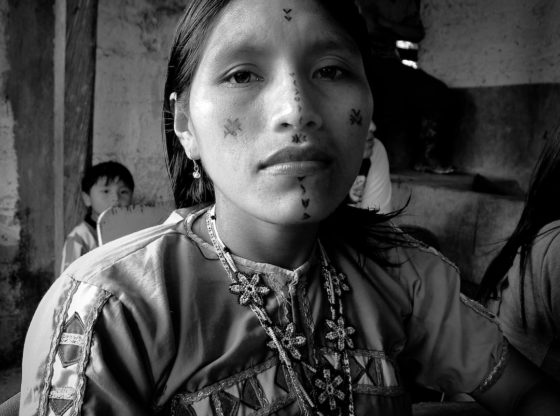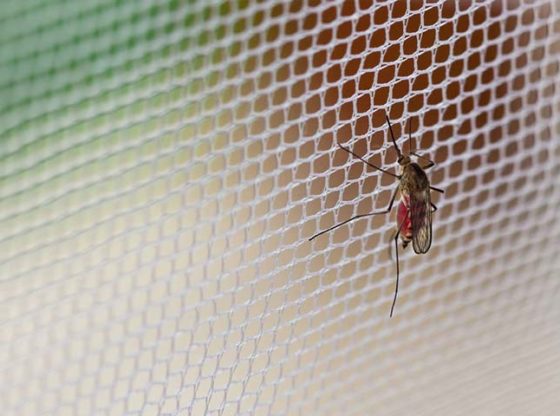Across the world, impoverished communities are dependent on illicit economies for their livelihoods. Traditional law enforcement approaches to targeting these economies are often ineffective, punitive, and fail to address why people are so reliant upon them. A new policy agenda is required; development agencies and NGOs need to play a stronger role. Allan Gillies discusses the issues at play.
The Special Session of the United Nations General Assembly on the World Drug Problem in 2016 (UNGASS 2016) was called in response to growing dissatisfaction with the international drug control regime. Prominent among the system’s discontents were governments and civil society groups from major areas of global drug production and trafficking in Latin America. They argued that militarised counter-drug policies had failed to stem cocaine flows, while simultaneously deepening drug-related violence and insecurity across the region.
The ‘war on drugs’ had also targeted rural communities who turned to cultivation of coca – the raw organic ingredient of cocaine – not due to greed, but because of poverty. Enforcement-based policies, including forced eradication of coca crops, had little effect on the price and availability of cocaine on North American and European streets, instead only serving to inflict harms on precarious livelihoods. Where official development programmes were ineffective, illicit coca had offered these communities a viable – and vital – source of income.
The reality is this: for many communities living in crushing poverty, or in areas blighted by conflict, involvement in illicit economic activity can be a ‘solution’ to the real problems they face. This dynamic raises difficult questions around the relationship between illicit economies and development.
Such uncomfortable truths underpin the development dilemmas of illicit economies. From Andean coca growers and opium-poppy farmers in Afghanistan, to refugees and migrants forced into the service of people smugglers, there are numerous examples around the world of impoverished and desperate communities turning to illicit economies for their survival. This frequently occurs in areas where the state is absent or distrusted, and where international policy responses and development aid have failed.
The reality is this: for many communities living in crushing poverty, or in areas blighted by conflict, involvement in illicit economic activity can be a ‘solution’ to the real problems they face. This dynamic raises difficult questions around the relationship between illicit economies and development. The international development sector, though, has been criticised for failing to adequately engage with this reality.
ILLICIT ECONOMIES: A LAW ENFORCEMENT OR A DEVELOPMENT ISSUE?
The policy area of illicit economies has typically been viewed as a law and order and/or security issue, with development agencies and NGOs ceding ground to law-enforcement and military forces. These actors are right to highlight the dangers to well-being which are posed by illicit activity, such as the cocaine trade. Beyond the health and social effects of illicit drugs, for example, organised crime groups frequently use violence, exploit vulnerable populations, drive corruption, and cause failures in governance in many areas of the developing world. In some cases, illicit economies may also be linked to conflict, as armed actors use these revenue streams to fund their violent campaigns. Across the development sector, therefore, illicit economic activity has typically been framed as a problem to be addressed by law enforcement agencies, and a serious threat to human development.
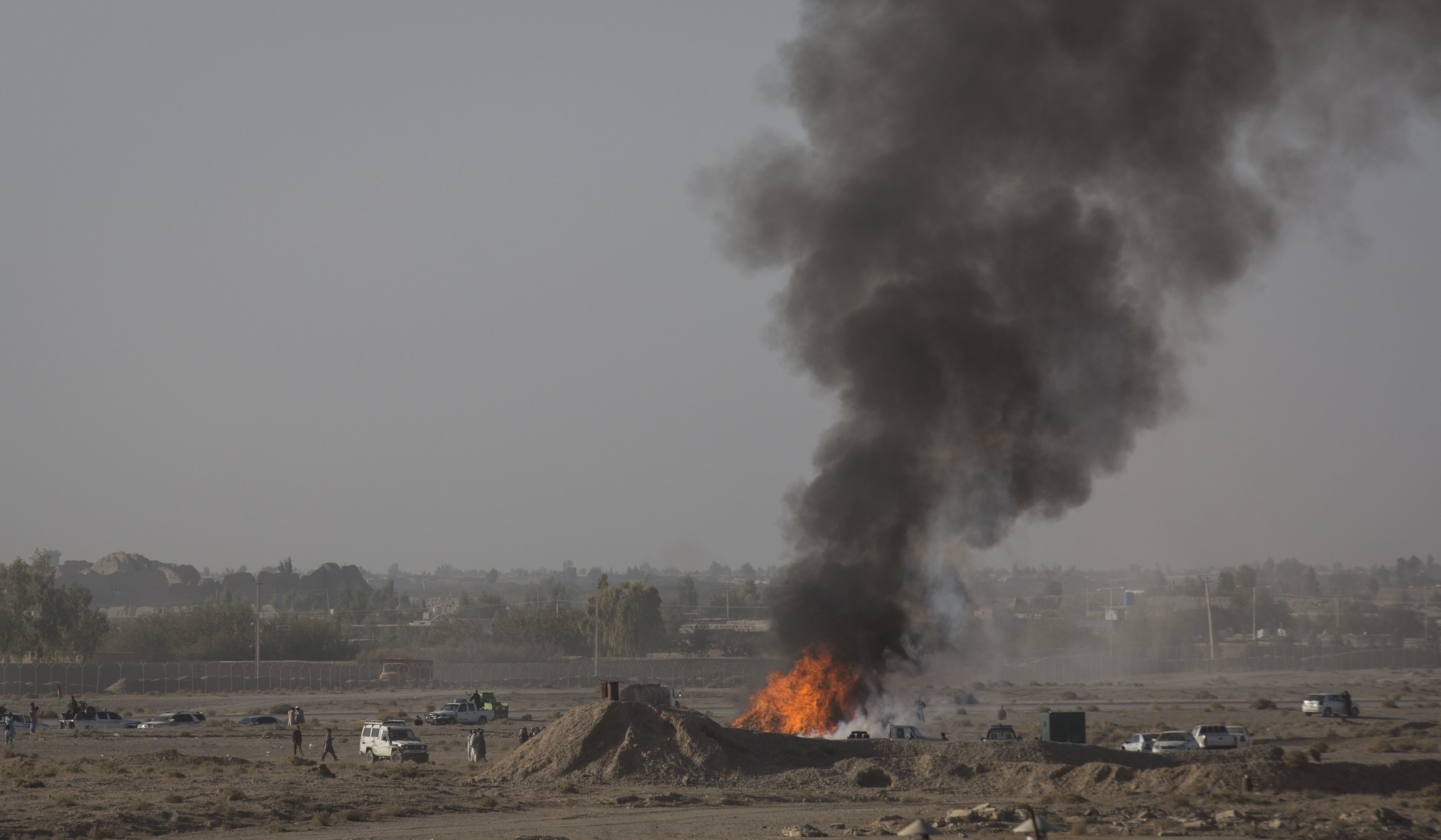
More prosaic factors have also influenced this stance. Development agencies have been reluctant to initiate bureaucratic battles with counterparts in the security forces, who view this policy area as their institutional domain. NGOs, meanwhile, have been wary of becoming embroiled in politically sensitive issues, such as illicit drug production, for concern of damaging their relationships with public benefactors and donor agencies. For both areas of this sector, there is also the difficulty in acknowledging that, in some cases, involvement in illicit activity may have been more effective than development programmes in lifting communities out of poverty.
Although law enforcement perspectives are needed to address the pernicious effects of illicit economies, they frequently miss the development aspects of the problem.
However, vacating responsibility for this issue has had real implications for such vulnerable communities. Although law enforcement perspectives are needed to address the pernicious effects of illicit economies, they frequently miss the development aspects of the problem. This includes the socio-economic drivers of involvement in illicit activity, as well as the consequences of law enforcement interventions on vulnerable sectors. As the international community works towards Sustainable Development Goals, actors such as Christian Aid have called for more joined-up thinking between law enforcement and development sectors to understand the multifaceted effects of illicit economies on the world’s poor; to recognise their realities and limited choices when formulating responses.
DEVELOPMENT DILEMMAS AND SURVIVAL
There are many cases from around the world that demonstrate the complex relationship between illicit economies and development, all with their own particular dynamics. As alluded to previously, for example, refugees fleeing civil war in Syria have frequently turned to people smugglers, either to reach safety or to facilitate their journey to Europe. For those remaining in refugee camps, there have been reports of black market trading of household goods and food, as families look to enhance their income beyond the minimal provisions provided by humanitarian services.
NGOs have also noted the operation of ‘Shawish’ in refugee camps in Lebanon, Syria, and Palestine: shawishes are gatekeepers who control many aspects of the camp, including the distribution of aid among residents. In such cases, families must negotiate these illicit markets if they are to survive.
The example of the cocaine economy in Latin America has a longer history. Although development programmes in this region have been pursued intermittently, critics argue that the policy response has been overwhelmingly fixated on enforcement measures. This relegates the livelihood concerns of those at the lower end of the trade to a minor consideration, prioritising instead a focus on ‘drug war’ goals.
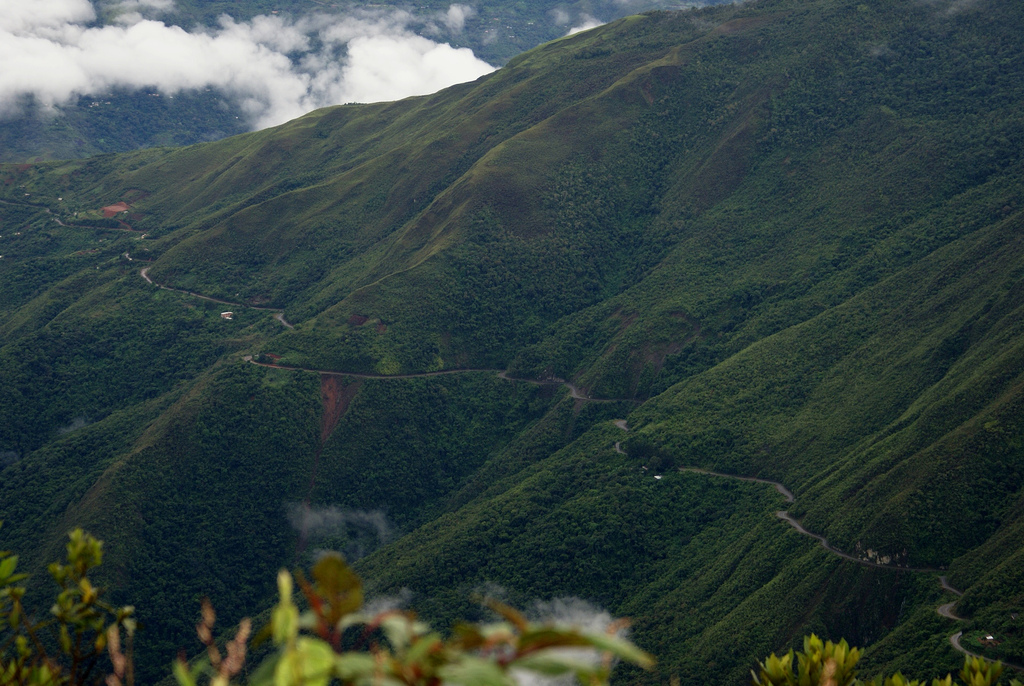
Coca growers in Bolivia, Colombia, and Peru, for example, have regularly formed the focus of the ‘war on drugs’ in the region. Coca in its natural form is relatively harmless, and has been used in the Andean region since before the age of the Incas. It continues to have cultural significance to the indigenous populations of the region. But of course, consumption of cocaine has transformed coca into an international commodity. Coca growers hold relatively small plots, mixing coca with other crops as a fail-safe source of income. Coca’s durability and relatively stable market price makes it an ideal cash crop for remote areas of the rugged Andean mountains, where infrastructure is often lacking. While the price that farmers can get from coca may be relatively high compared to other crops, the vast profits of the cocaine trade are actually accumulated by organised crime: growers receive as little as 0.01 percent of the final street price of the drug. The involvement of coca growers in this lucrative market is driven by poverty, and a lack of viable alternatives.
While the price that farmers can get from coca may be relatively high compared to other crops, the vast profits of the cocaine trade are actually accumulated by organised crime: growers receive as little as 0.01 percent of the final street price of the drug.
This latter point is demonstrated by the frequent failures of crop substitution programmes. Growers have been encouraged to adopt other cash crops with promises of technical and financial support. At times, such promises have been conditioned on the total prior eradication of coca crops, thus entailing a significant financial risk for growers. Drug control, rather than an effort to help develop these communities, has typically been the overriding concern and indicator of success for these projects. While some programmes have had positive effects, lack of economies of scale, poor infrastructure, and fluctuations in world market prices have often hindered the move to other global commodity crops, leaving farmers with little choice but to return to coca.
These programmes have also been criticised for insufficient levels of funding, of representing nothing more than window dressing for ‘harder’ enforcement efforts. The US has spent billions of dollars waging its war on drugs in Latin America; resources for militarised enforcement efforts have far outstripped development programmes.
As part of its approach, Washington has pressured the governments of the region to oversee the forced eradication of coca crops: this might involve the deployment of heavily-armed state security forces to coca growing areas; or it might entail aerial fumigation, the practice of spraying herbicides on presumed-coca plantations. The former activity has been heavily associated with human rights abuses of local populations; the latter has been blamed for environmental destruction and for poisoning food crops and drinking-water. To restate the point: these enforcement efforts have had little to no effect on the price and availability of cocaine on Western markets, but have caused significant hardship to impoverished communities.
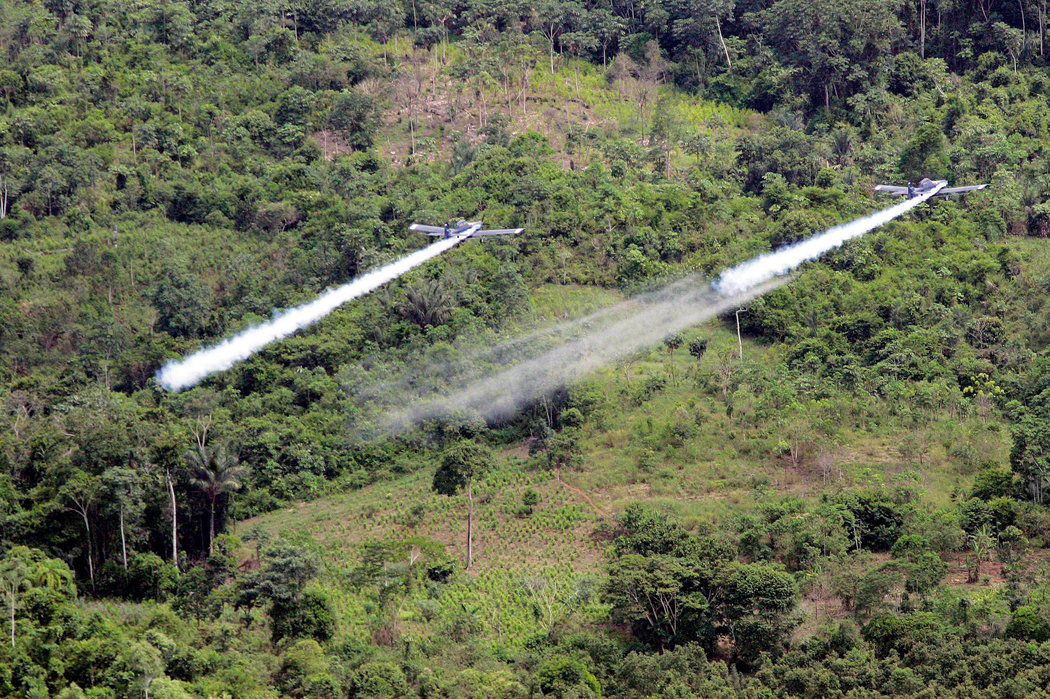
In Colombia, and to a lesser extent Peru, this situation has been complicated by the presence of armed actors in coca-growing regions, including guerrilla forces and paramilitaries. In formally-FARC controlled areas, for example, coca growers would pay tax on their crop to the de facto guerrilla government. During incursions from paramilitaries and even state security forces, such communities risked censure for their role as supposed-FARC collaborators. Left in limbo, coca growers were forced to navigate this complex context, as they looked to protect both their lives and livelihoods.
The Colombian government’s peace settlement with the FARC has not settled such issues. There are doubts over the government’s ability to deliver viable alternatives to coca for these communities of growers, and fears that another actor - or actors - will step in to fill the void left by the FARC and assume control of the drug trade.
These enforcement efforts have had little to no effect on the price and availability of cocaine on Western markets, but have caused significant hardship to impoverished communities.
Reports from the hydrocarbon-rich south of Colombia - of displacement of coca growers - are also a cause for concern. These communities believe the Colombian government has used counter-drug policy as an excuse to forcibly eradicate their crops so that multinational companies can begin oil exploration. Consequently, in these areas, not only is the government’s legitimacy questioned; its national development plans are also thought to be coming at the cost of rural livelihoods. Operating in the shadows of the illicit economy, these communities are left without protection. Their story thus seems to reflect one of our key concerns: that the enforcement approach places drug control before poverty reduction, human rights, and human security.
TOWARDS A NEW AGENDA?
Looking at these examples, we see communities operating at the margins. And we see where the state, international policy responses, and development aid have all been ineffective. Involvement in illicit activity is often a matter of survival, frequently entailing risks for the communities involved. At times, enforcement-led policies have only served to deepen existing risks - or create new ones - for these people. How, then, can the international community more effectively tackle the clear and obvious threats posed by illicit economies, while avoiding further harms to the marginalised communities who often rely on them?
How, then, can the international community more effectively tackle the clear and obvious threats posed by illicit economies, while avoiding further harms to the marginalised communities who often rely on them?
There are already clear signs of movement towards a new agenda. The United Nations Development Programme, for example, has highlighted the damaging effects of drug control policies on human development, while the outcome document of UNGASS 2016 recognised that efforts to tackle illicit drug economies and achieve Sustainable Development Goals were complementary and mutually reinforcing.
More tangibly, the Bolivian government – supported by the European Union and the United Nations Office on Drugs and Crime – has introduced a less confrontational approach to monitoring and controlling coca cultivation. This system of ‘social control’ is designed to prevent diversion of coca to the illicit market, and ensure growers continue to have a base-level of subsistence. Alongside this initiative, GIZ – the German government’s development agency – has been working to improve alternative forms of sustainable agricultural development in coca growing areas; prioritising the region’s development, rather than reductions in coca cultivation, as the key indicator of success.
Seizing on this early progress, Christian Aid, in partnership with the University of Glasgow, the Global Partnership on Drug Policies and Development at GIZ, Open Society Foundations, and the School of Oriental and African Studies (SOAS), will hold an international colloquium in April this year at the University of London. The event is titled: Addressing the Development Implications of Illicit Economies: a Cross-Disciplinary and Cross Sectoral Exchange.
The colloquium aims to improve a better understanding of the development implications of illicit economies, bringing together the international development sector with law enforcement agencies, academics, and representatives of civil society. The meeting will enable representatives of the key groups to share different views and experiences of this topic, discuss emerging research, evidence needs, policy responses, and specific challenges.
This dialogue is essential if we are to address the uncomfortable truths and development dilemmas around illicit economies, which shape the daily lives of so many impoverished communities.
Dr Allan Gillies ([email protected]) holds an ESRC Global Challenges Research Fund Fellowship at the School of Social and Political Sciences, University of Glasgow. His research addresses the political economy of the coca-cocaine trade in Bolivia, and the development implications of illicit economies. Allan currently sits on the Secretariat and Organising Committee of Christian Aid’s International Colloquium - Addressing the Development Implications of Illicit Economies: a Cross-Disciplinary and Cross Sectoral Exchange. For more information on the Colloquium, please email [email protected] with your name and contact details.
Feature image: A coca field in Bolivia. Image: Kristin Miranda [CC BY-ND 2.0]

